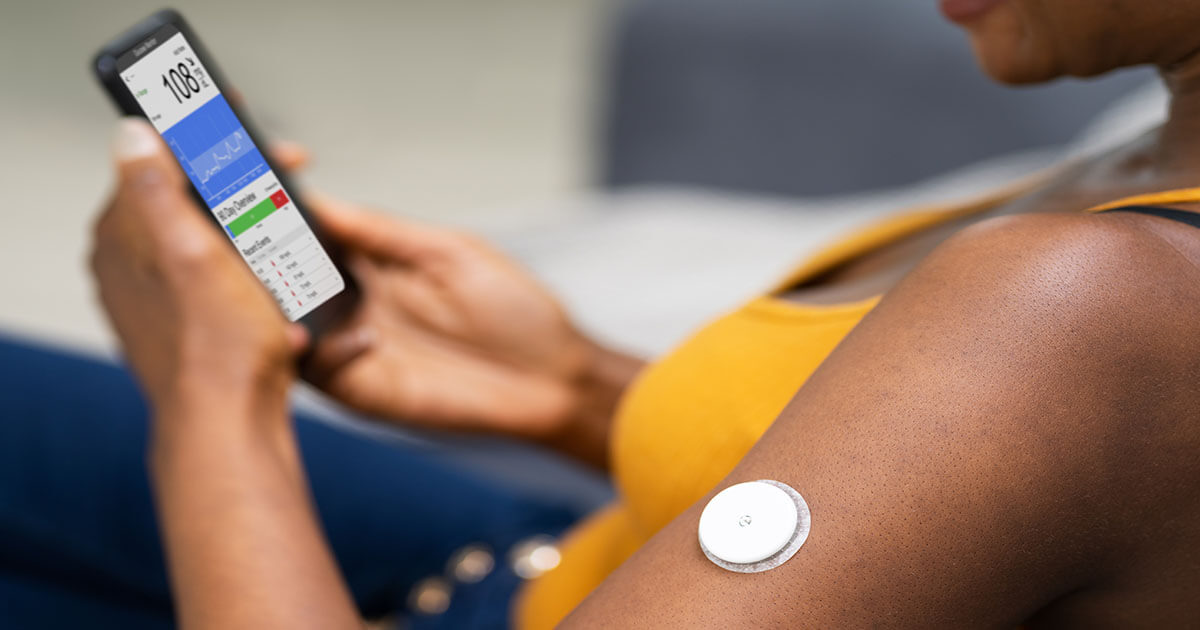Many authors argue about the definition of person-centred care. As healthcare professionals, we are familiar with past models of care, such as family-centred, user-centred, individualised or personal care. Within the NHS, patients are currently considered experts in their own management and should be provided with access to health information that is specific to their needs. When the person-centred model of care was originally proposed, health information took the form of booklets, lectures and goal-setting (Barlow et al, 2002). Advances in technology are now enabling patients to access information in many additional formats, including digital technology such as websites and apps (Honeyman et al, 2016).
Kitson et al (2013) recognise person-centred care as an integral part of quality healthcare delivery, with the healthcare professional creating a positive relationship with the patient. However, Johansson (2015) identifies those living with diabetes as needing to play an equal part in planning, developing and assessing their care in order to ensure it is appropriate for their needs.
Education within diabetes care
Education is a key factor within diabetes care and structured education aids the promotion of a successful outcome (Martin et al, 2012). The provision of education by the healthcare professional provides children and young people (CYP) with valuable tools that will support and develop their self-management skills and overall control (Christie and Khatun, 2020). Structured education programmes were developed with the intention of delivering information to CYP and/or their families to improve outcomes (National Institute for Health and Care Excellence [NICE], 2015). Past NICE guidelines (2004) found structured education to be wide-ranging and generic. Research suggests that generic education has only minimal learning impacts upon the development of knowledge, skills and HbA1c (Murphy et al, 2006; Christie et al, 2014). Therefore, if healthcare professionals use a generic approach to an education pathway, any idea of achieving a person-centred approach to care – as recommended within the NHS Long Term Plan – will be lost (Guyers et al, 2019). Swift (2009) highlighted the need for diabetes education to be structured and age-appropriate. It needs to be adaptable, personalised, easily accessible and delivered after thorough assessment of the child/young person and their family’s overall ability. Education should also focus on appropriate psychological adjustments and the child/young person should be able to engage with their peers to aid learning.
App-based platforms to support self-management
Caffazzo et al (2012) discusses the issues that CYP face due to the complicated daily regimens associated with the management of their diabetes. One way to increase the number of interactions that support their adherence to self-management is the use of mobile technology in the form of app-based platforms.
There has been an increase in the number of people with access to smart-phone technology and in its use in day-to-day functioning in the past couple of years. This has created a powerful platform that can provide education and support decision-making while tailoring care to suit the needs of individuals living with chronic conditions (Kordonouri and Riddell, 2019). The use of apps in daily diabetes management is complex due to the components involved, including diet, blood sugar monitoring, physical activity, adherence to medication, coping and problem-solving skills, and risky behaviours, that may interact with each other (Bene et al, 2019). If well-designed, an app has the potential to increase patient engagement with their health and improve self-care.
Several studies have researched the use of app-based technology by adolescents with type 1 diabetes (Caffazzo et al, 2012) and adults with type 1 and 2 diabetes (Bene et al, 2019; Kebede and Pischke, 2019). In a large study of the impact of app use on diabetes self-care, 759 out of 1,682 adults with type 1 or type 2 diabetes reported using apps, such as Dexcom, Freestyle Libre and Xdrip+, to support self-management. App use was associated with improved self-care behaviours, including blood glucose monitoring, general diet and physical activities, leading the authors to conclude that apps can potentially support lifestyle change and glucose monitoring in individuals with diabetes (Kebede and Pischke, 2019). Poorly-designed apps may result in patients losing faith and not utilising the functions effectively; whereas apps that support self-management, offering advice when appropriate, may increase app use and its sustainability as an educational tool. For example, a diabetes app with a user-centred design that included gamification incentives was found to improve blood glucose monitoring in adolescents with type 1 diabetes (Cafazzo et al, 2012).
Recommendations
Both the NICE technology appraisal and guidelines (NICE, 2013; 2015) state that there should be an option for CYP to utilise technology as an aid to assist with the day-to-day management of their diabetes. Diabetes UK (2017) states that the introduction of new technologies is making living with diabetes an easier daily activity.
Not all patients adapt to or wish to use technology to support their day-to-day living with diabetes; therefore, healthcare professionals should allow CYP to make their own decisions and their choice must be respected (Vaala et al, 2015). For those CYP who do use technology, the healthcare professional must provide appropriate education and ongoing support.
“For children and young people who do use technology, the healthcare professional must provide appropriate education and ongoing support.”
The role of teamwork
Due to the increasing prevalence of diabetes alongside an ever-increasing population, there is a vested interest in patient education as a tool for self-empowerment to improve overall quality of life (Peimani et al 2010). Education must be central to ensuring CYP and their families are adequately equipped with the knowledge and skills to improve metabolic control to prevent complications and aid a healthy future (Royal College of Nursing, 2019). Educators must have relevant skills and training in the provision of structured education while working within their own limitations, continuously seeking professional development to advance knowledge and skills (Diabetes UK, 2014).
It is necessary to work within a team, as each team member has different expertise and levels of knowledge. The International Society for Pediatric and Adolescent Diabetes (2018) emphasises that there must be clear and consistent information provided, with each team member reinforcing the same message(s) to prevent confusion or miscomprehension and to promote positive metabolic and psychological outcomes. The Diabetes UK (2014) diabetes specialist nurse position statement reiterates this, stating that without one voice, lack of clarity will ensue. The evidence suggests it is important that team members follow a structured education pathway to ensure a united approach to knowledge delivery. This pathway needs to be adaptable to individual needs, ensuring the same information is cascaded regardless of patient age and their or their family’s current capabilities. Teams should draw on individual expertise to offer cost-effective ways of teaching (Peimani et al, 2010).
The role of the diabetes specialist nurse
The paediatric diabetes specialist nurse must have comprehensive, specialised, factual and theoretical knowledge within the field of diabetes (TREND UK, 2015). The International Society for Pediatric and Adolescent Diabetes (2018) highlights the importance of having trained educators; therefore, the on-going advancement in paediatric diabetes specialist nursing skills is of vital importance. Continual professional development with regards to advancing diabetes care and increasing the use of technology must be promoted. If the introduction of technology is incorporated into the paediatric diabetes specialist nurse’s role as an educator and the positive effects of technology improve outcomes, then this will reduce healthcare costs (Prahalad et al 2018).
“Healthcare providers must create a balance in education between face-to-face teaching and the use of app-based technology.”
Technology cannot stand alone
Published literature points to technology having a supportive role in the self-management of diabetes in CYP. Ng (2018) states that technology alone is not the answer and that barriers will restrict its use. Healthcare professionals must use their determination to drive change in a way that enhances care and supports the use of digital technology to improve patient quality of life. A review by Hunt (2015) suggests that technology is a good tool to supplement assistance provided by healthcare professionals and can be supportive by being both educational and motivational. However, Hunt found that, despite technology being effective in self-management and working within patients’ individual time constraints, patients still requested face-to-face contact with healthcare professionals and felt it was beneficial in their supportive care.
With these findings in mind, healthcare providers must create a balance in education between face-to-face teaching and the use of app-based technology to support individual and family needs and promote self-management for diabetes.




NHSEI National Clinical Lead for Diabetes in Children and Young People, Fulya Mehta, outlines the areas of focus for improving paediatric diabetes care.
16 Nov 2022